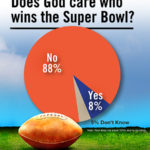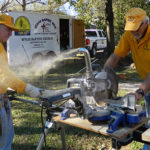NEW ORLEANS (ABP)—While Baltimore and San Francisco fought it out on the Super Bowl gridiron in New Orleans, law enforcement and ministries across the city waged a battle against the modern version of the slave trade—human trafficking.
Authorities and others who work to oppose the practice say it is alive and well in many American cities and usually is most pronounced during major sporting events.
 |
|
Baptists and other faiths joined law enforcement in combating human trafficking in New Orleans before and during the Super Bowl. (U.S. State Department Photo)
|
“The Super Bowl is one of the biggest human trafficking events in the United States,” Texas Attorney General Greg Abbott told Time magazine in 2011. Federal, state and local law-enforcement agencies have created special units to counter human trafficking. Baptists and other churches and denominations have launched ministries to rescue and prevent victims.
In New Orleans, it started before Sunday with the bust of a sex-trafficking ring in the French Quarter by federal authorities, according to WWL-TV. Five women, forced to come to New Orleans to work as prostitutes for pimps, were rescued from the ring, and eight men were arrested, the station reported.
Economics drives the trade
Simple economics explains why human trafficking is a booming business during major sporting events such as the Super Bowl, according to Jennifer Young of Unbound Ministries with Antioch Community Church in Waco.
“That just has to do with demand,” Young said. “People wouldn’t sell other people for sex if that wasn’t something they would buy.”
The Super Bowl attracts a large number of men from across the nation, Young noted, some looking for sex while away from wives and children. Super Bowl tickets are anything but cheap, she added, and many men who attend the game have an excess of money and are willing to spend it to indulge their desires.
The U.S. Department of Justice defines human trafficking crimes as ones that “focus on the act of compelling or coercing a person’s labor, services or commercial sex acts.” Since the Super Bowl is a special event, traffickers can earn more for the services of their victims.
Sign up for our weekly edition and get all our headlines in your inbox on Thursdays
Worldwide problem
Forced labor and sex trafficking are the most common types of human trafficking, in what widely is regarded as modern-day slavery. According to the A21 Campaign, which seeks to abolish trafficking in the 21st century, an estimated 27 million men, women and children in the world are enslaved and exploited for manual and sexual labor against their will.
Human trafficking is not just a worldwide problem, however. World Relief, an organization that equips and empowers churches in ways to bring justice, reports high demand for trafficking in the United States as well. It estimates a person is trafficked within U.S. borders every 10 minutes.
Young also emphasized the problem within the United States, saying anywhere from 100,000 to 300,000 children are trafficked each year in the United States alone.
“A lot of people think that it is internationals, but it is our children as well,” Young said.
The issue brings together people of varied denominations, with Baptists heavily invested. American Baptist International Ministries encourages and oversees the development of new programs dealing with the issues of human trafficking globally.
Free NOLA
In preparation for Super Bowl weekend, First Baptist Church in New Orleans and other like-minded groups worked together to form Free NOLA, a faith-based coalition fighting against domestic trafficking. Free NOLA trained local taxi cab drivers and medical personnel expected to encounter trafficked individuals during Super Bowl weekend.
Christi Gibson, the connections minister at First Baptist, said those individuals were trained on what constitutes trafficking, what signs to look for and which authorities to contact if there is suspicion a person has been trafficked.
Free NOLA also sponsored an open-to-the-public prayer-walk in the French Quarter Saturday afternoon, where the public was invited to pray over the city and human trafficking victims. Gibson believed this would be a powerful tool to see slaves set free in New Orleans during Super Bowl weekend.
“We believe firmly our battle is not against flesh and blood,” Gibson said. “The secrecy and depth of this crime is not something we, as just plain old church people, can jump














We seek to connect God’s story and God’s people around the world. To learn more about God’s story, click here.
Send comments and feedback to Eric Black, our editor. For comments to be published, please specify “letter to the editor.” Maximum length for publication is 300 words.